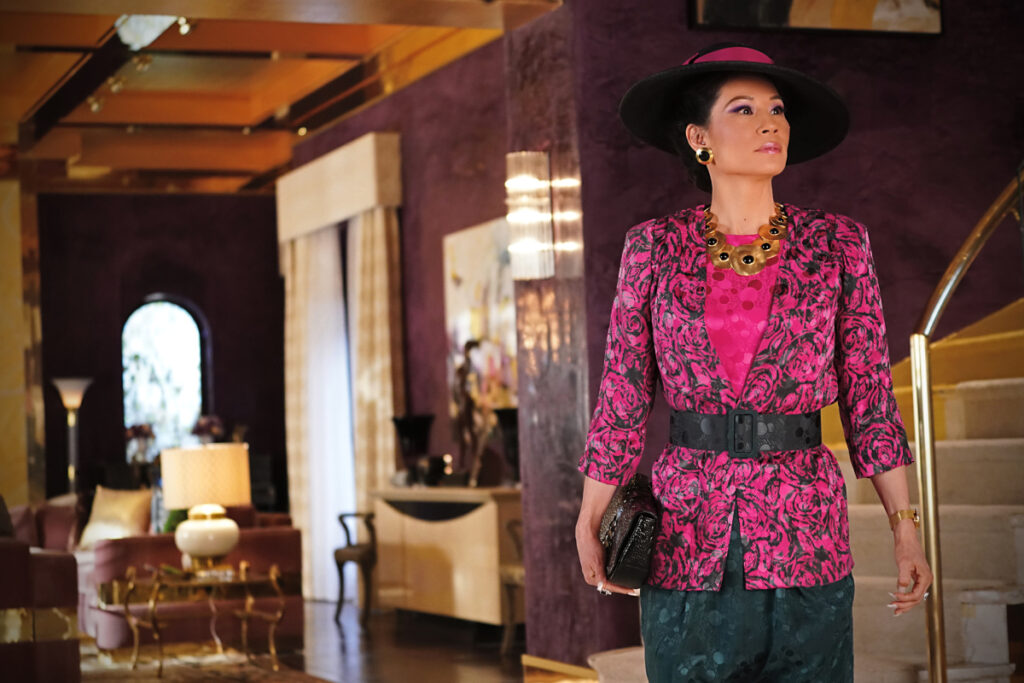A show about murderous spouses created by the man who gave us the smash-hit suburban satire “Desperate Housewives” should be a slam-dunk. Populate the show with a talented cast that includes the always-great Ginnifer Goodwin, Lucy Liu, and Alexandra Daddario, and you’ve got the recipe for at least a mildly entertaining diversion at the end of a long summer. So why do the first two episodes of “Why Women Kill” come off like a weak slap?
The main problem is an uncanny valley of tone. A show that opens with an old-fashioned comic book-inspired opening sequence of women killing their husbands needs to be campy trash, but “Why Women Kill” can’t be taken seriously enough for drama and isn’t fun enough for camp. Consequently, it’s just kind of there, pushing its triptych of stories up a hill to the point where they fulfill the title of the show. At its worst, it feels like Cherry dug through discarded scripts for his ABC hit and reworked them for this CBS All Access show but wasn’t given the creative freedom to really dig into sexuality and violence like the campier works of Ryan Murphy. All in all, it feels like a missed opportunity to do something escapist and clever.

The concept should provide for a trashy playground for Cherry and his writers, but is also part of the reason the show is often so disjointed. It’s basically three shows in one, telling the stories of doomed couples who lived in the same house generations apart. In the ‘60s, Ginnifer Goodwin plays Beth Ann, loyal and obedient wife to Robert, who expects a meal on the table every day and an immaculate home. Robert has been “working late” a lot lately, and Beth Ann is about to learn that her perfect husband isn’t so perfect. Goodwin doing a riff on Betty Draper from “Mad Men,” coming apart at the perfect seams as she sees her idyllic marriage crumbling, is the best thing about the show, and this arc appears to have the most solid relation to the show’s title, answering “because men can be awful.”
In the ‘80s, Lucy Liu’s Simone has taken over the home and the time-jump allows Cherry and company to play with the excess of that era. At a lavish party that Wham! would admire in terms of fashion, Simone discovers a secret about her husband Karl (Jack Davenport), but it’s the son (Leo Howard) of one of her friends who could end up being a bigger problem. Finally, Eli (Reid Scott) and Taylor (Kirby Howell-Baptiste) are in an open marriage in 2019, but Taylor breaks a rule and ends up bringing her girlfriend Jade (Alexandra Daddario) home for a few days. We all know threesomes never end well on soapy TV.
Sounds like fun, right? I wish I could say it was, but all three arcs feature a solid performance that’s stuck in bad writing and weak characters. Sure, there are scenes that work, particularly in Goodwin’s arc, but so much of this is depressingly routine, lacking the spark that trashy entertainment needs to work. The most fun element of Liu’s arc (as solid as she is, as always) is the fashion, and the 2019 threesome story feels written by a college student in the mid-‘90s. It’s a facile look at open marriage and bisexuality that hits boring, predictable beats. Although even with that plot, the underrated Daddario is solid. Maybe that’s why women kill—they’re forced to make and watch bad TV.
Two episodes screened for review.












